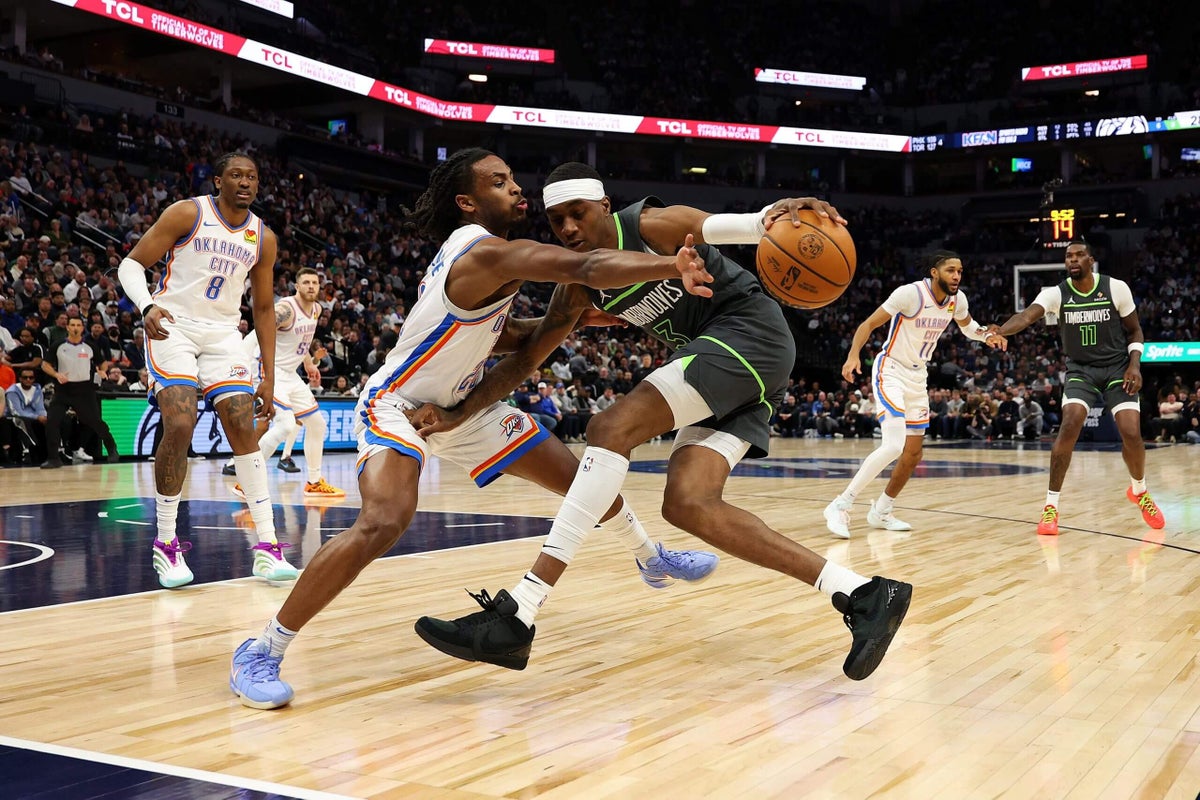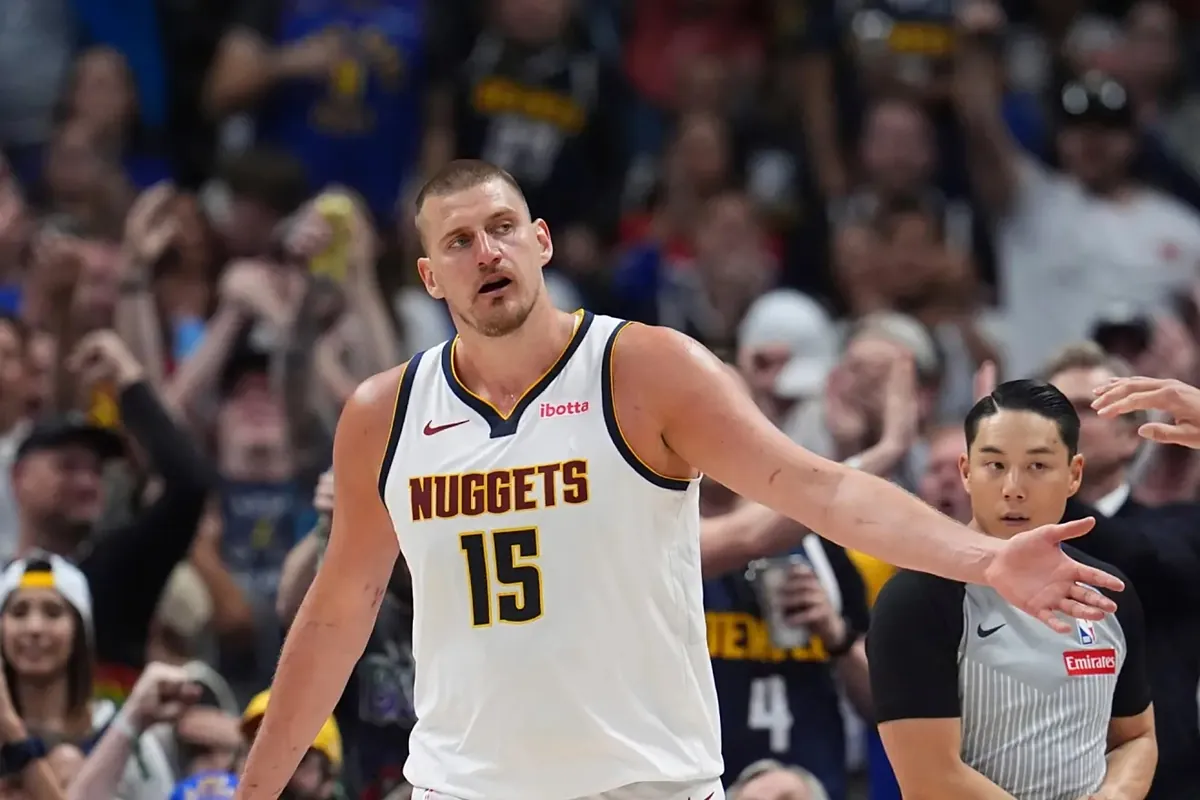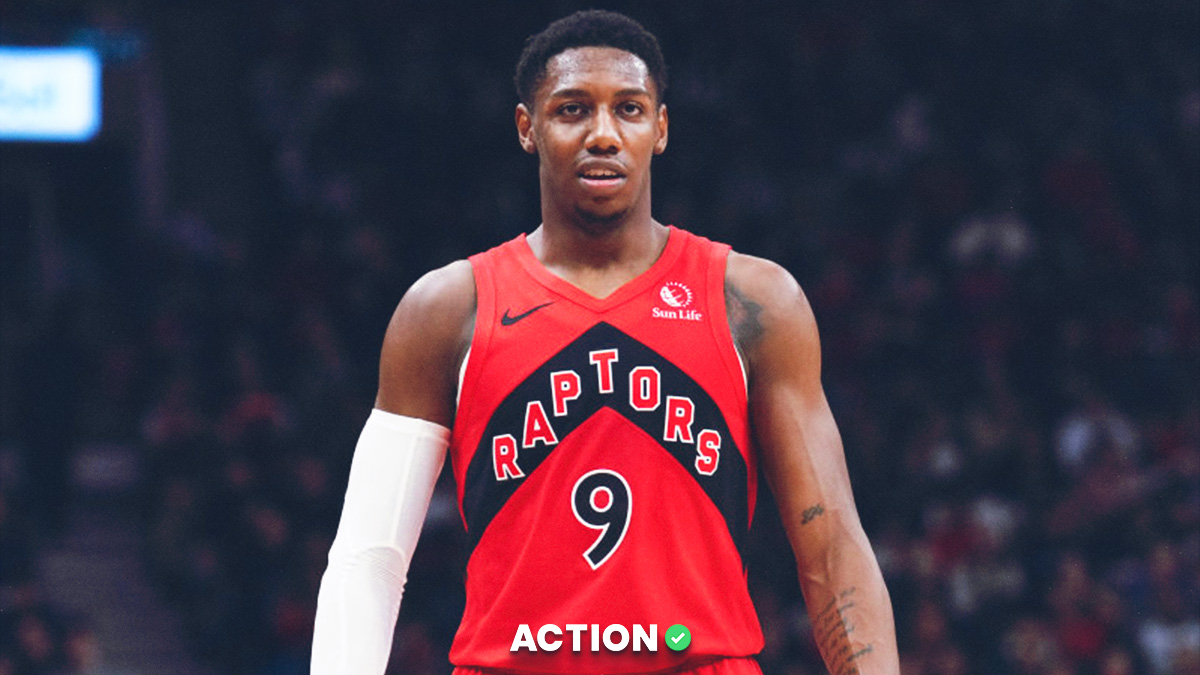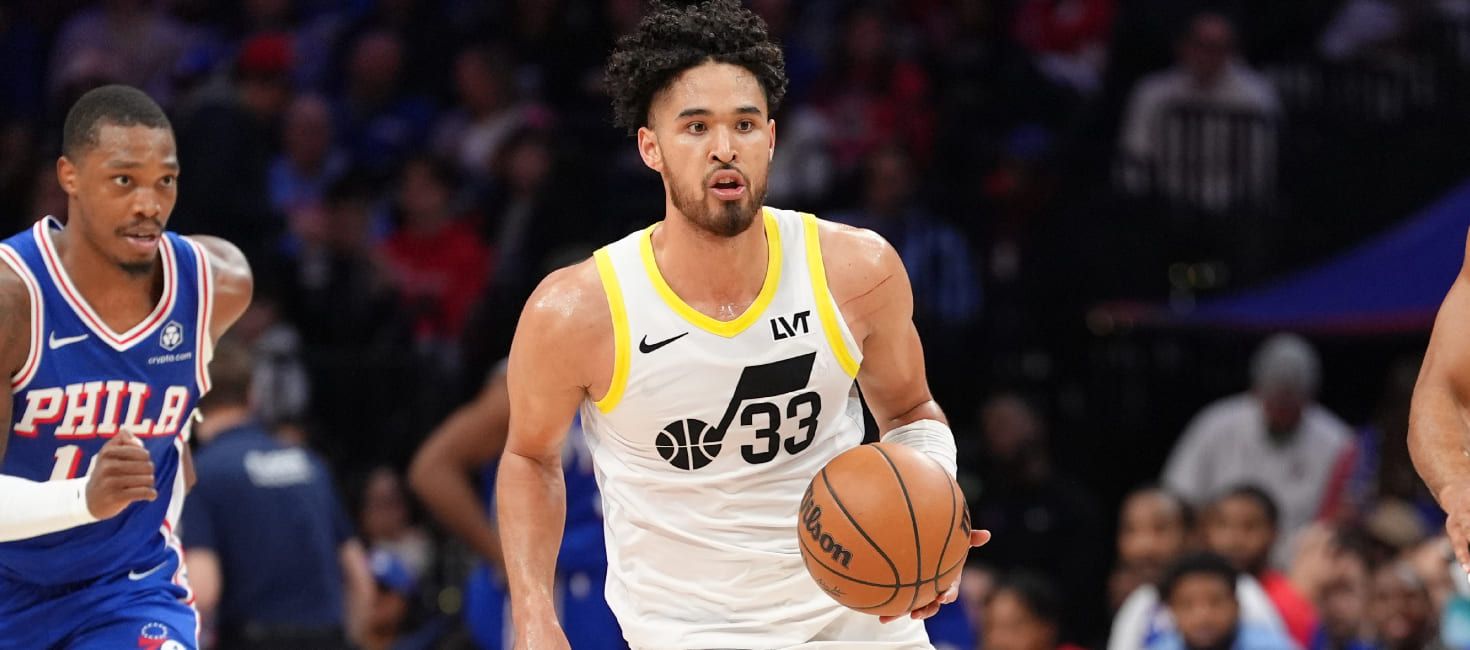
Jalen Williams solved the problem.
Doing away with positions on the NBA’s All-Defensive Teams, a change the league implemented last season, clogs ballots with rim protectors. In 2023-24, the All-Defensive First Team comprised four centers and a forward. Guards or wings, such as Williams, a versatile transformer inside the Oklahoma City Thunder’s suffocating squad, won’t receive as much recognition as they once did.
Advertisement
Earlier this season, while guesting on “The Young Man and the Three” podcast, Williams proposed a solution. There should be two defensive players of the year, he floated, one for big men and one for perimeter players. As the sport has flocked to the 3-point arc, so should awards.
He had a point — enough so to inspire a riff on his idea. It’s time to run through a mock ballot for a new, albeit fake award: the All-Perimeter-Defense Teams.
We’re implementing the same regulations for this that the NBA has for its actual All-Defensive groups: a first team and a second team. The 65-game rule will carry over, which eliminates players who could otherwise be in contention, such as the LA Clippers’ Kris Dunn or Derrick Jones Jr., who have pestered dribblers all season but haven’t played enough to make the ballot.
The All-Perimeter-Defense First Team will publish later this week. Here is the second team, in no particular order:
Jalen Williams, wing, Thunder
No, Williams is not granted special access because this concept grew from his mind. The Thunder swarm the basketball as if they shoot out of a beehive. Williams is one of the many who make them special.
Oklahoma City is loaded. Big men Isaiah Hartenstein and Chet Holmgren wall off roads to the basket. Bench guard Alex Caruso is as handsy as it gets. MVP candidate Shai Gilgeous-Alexander, a clever kleptomaniac, is the NBA’s best defender whom offenses frequently target, just because whoever is playing OKC doesn’t have any better options. Other Thunder players will come up later, but even on a squad so stacked, Williams’ style stands out, because he isn’t defending only like-sized players.
The Thunder, who have owned the league’s top defense all season, excel because of their creativity. Head coach Mark Daigneault will throw one of the centers on the worst opposing 3-point shooter, allowing Hartenstein or Holmgren to roam into the paint, plugging up driving lanes. Williams gives Daigneault the freedom to do it.
Advertisement
Only a handful of defenders can switch successfully onto all five positions. Even fewer can begin possessions on point guards through centers. Williams is inside that most exclusive crew.
The 23-year-old has guarded big men aplenty all season. Back in autumn, when the Thunder were without both Hartenstein and Holmgren, the 6-foot-5 Williams started at center for six games, taking tip-offs and all. He’s physical against players who may tower over him but still struggle to move him.
Williams can switch on screens, but he’s also capable of playing like a big man, even if he’s not one. The advanced metrics paint him as a top-notch defensive playmaker. He’s in the top 10 in the NBA in steal rate. Meanwhile, opponents are shooting just 56 percent on dunks and layups when he’s the closest defender, best in the NBA among all non-bigs, according to Second Spectrum.
Nickeil Alexander-Walker, guard, Timberwolves
Sometimes, it seems like Alexander-Walker is doing a bit. If an NBA player wanted to make fun of a coach who boasted unreasonable demands about defensive intensity, he wouldn’t look much different than the Timberwolves’ guard.
No one bends his knees like Alexander-Walker. No one crouches lower, as if he’s scrunching himself into the fetal position, but with his arms stretched out instead of wrapped around his knees. As long as the ball is in play, Alexander-Walker will not straighten out.
Look at this fourth-quarter possession from the Timberwolves’ double-overtime win over the Denver Nuggets last week. Alexander-Walker defended Russell Westbrook for much of the evening, which meant pick after pick from three-time MVP Nikola Jokić coming his way.
Alexander-Walker was built for this. He’s among the best in the world at avoiding screeners, no matter their size. It all starts with his stance. He doesn’t just avoid screens; he springs himself around them.
Advertisement
In this case, since he was on Westbrook, a bolt of lightning but not a 3-point shooter, that meant jolting under the screen from Jokić. He caught up to the speedster before Westbrook even reached the arc.
Then watch what happened next:
Westbrook and Jokić have mastered this type of two-man game all season. They will try a pick-and-roll, and if it doesn’t work, they ping-pong the basketball to and from each other with dribble handoffs or more pick-and-rolls until one of them eventually breaks free. Alexander-Walker was ready for them.
Westbrook gave the ball up to Jokić and attempted to set a screen for him … but he couldn’t do it, purely because Alexander-Walker would not get out of his way.
The play ended in the Nuggets’ favor, with an unfortunate foul from Wolves center Rudy Gobert on Westbrook. But that doesn’t take away from Alexander-Walker’s persistence.
A few years ago, Alexander-Walker appeared due for a journeyman career. Now, he’s gotten stronger and smarter on the defensive end. He’s able to hold that stance for as long as he needs, and he’s established himself as one of the world’s peskiest pick-and-roll defenders.
Derrick White, guard, Celtics
White is on track to make history. As long as he picks up a block during the Celtics’ final couple games, he will enter a rare class of four shot swatters.
The other three are all Hall of Famers.
No player 6-4 or shorter has averaged at least one block a game in consecutive seasons since Dwyane Wade did it in 2010 and 2011. The feat has occurred only three times since the NBA began tracking blocks in 1973-74. David Thompson and Dennis Johnson are the only other two on the list.
White is leaping to levels people his size cannot usually reach.
He’s a menace in transition, where he records plenty of those rejections, and moves his feet well enough to take over as a major cog — maybe the main cog — inside an elite defense. The Celtics have tread around the top five in points allowed per possession all season. Like the Thunder, they overflow with instinctive defenders.
Advertisement
Perennial All-Defensive member Jrue Holiday mans the point of attack most and, like Williams does in OKC, will even start plays on centers, which allows the Celtics to switch with more ease on pick-and-rolls. But because of a nagging knee injury, Holiday is no longer eligible for awards.
White, an All-Defensive member in each of the past two seasons, is Boston’s best available candidate, and he’s a deserving one at that.
Jaden McDaniels, wing, Timberwolves
A mid-March Timberwolves victory had crescendoed to its loudest moment.
All-Star wing Anthony Edwards had rolled in a layup to put Minnesota up eight in a game it once trailed by double digits. The evening was reminiscent of the Wolves’ season. A team that struggled early was 56 seconds away from a seven-game winning streak. But it needed one final punch.
That’s McDaniels’ specialty.
Orlando Magic forward Franz Wagner raced up the court for a quick layup. He crossed to his left behind his back, which didn’t free him of McDaniels’ 6-9 drapery. The Magic will go stagnant, but Wagner is a chore to deal with when he’s in attack mode.
Of course, McDaniels makes Cinderella’s to-do list seem short.
As Wagner took off for a layup, McDaniels left his feet with him, smacking a layup to Alexander-Walker and sealing the win.
The Timberwolves are climbing, 14-4 since the beginning of March, when they’re scoring in droves and clamping down on the other end.
McDaniels’ daily duties are exhausting.
He’s run 95 miles on defense so far this season, the fourth-most in the NBA, according to Second Spectrum. He has been the closest defender on the second-most shots of any perimeter defender in the league. His blocks more often come while guarding, as opposed to as a help defender. Minnesota head coach Chris Finch will throw him on giant wings like Jayson Tatum one night and on quick-twitch guards like Stephen Curry the next.
Advertisement
His highs come against the league’s best creators. Among players eligible for postseason awards, McDaniels is fifth in the NBA in Bball-Index’s matchup difficulty among award-eligible players. And he’s racking up moments like the one against Wagner, tallying more than 2,500 minutes this season.
Aggregate production matters, as does quality. McDaniels checks both boxes.
Cason Wallace, guard, Thunder
Despite occasional rebounding problems, the Thunder tend to win the possession game. No one forces more turnovers than they do, and no one gives the ball back less. Such is the epitome of Wallace, a 6-4 guard with more than twice as many steals this season as he has turnovers. He’s third in the NBA in steals per game.
Wallace will chew up agile guards as fellow hound Lu Dort handles larger playmakers. Oklahoma City’s defense is in constant attack mode, but many of those takeaways, even the ones that don’t end up in Wallace’s hands, occur because ballhandlers get frantic late in the shot clock.
Take a fourth-quarter possession from a recent Thunder victory as an example. Detroit Pistons point guard Dennis Schröder picked up his dribble and looked to toss a pass at sharpshooter Malik Beasley, who is far beyond the 3-point arc. But Wallace, per usual, pressed up against Beasley. The 21-year-old will pick up all types of players just past the half-court line — and he’ll do it before they ever touch the basketball.
The following is a steal that comes after a guy puts in the work.
Wallace shaved a second off the shot clock when he prevented the initial pass to Beasley. He then gave Beasley nowhere to go as Pistons center Paul Reed jogged up top for an outlet. Once Beasley gave the basketball up, Wallace anticipated that he will curl around Reed for a handoff, which the big man couldn’t make. Wallace is too close.
Advertisement
Schröder let go of the basketball with 15 seconds on the shot clock. By the time Reed goes to his second option, a handoff with Schröder that Dort blows up, only eight ticks remain.
The Pistons have to rush, and Wallace pokes away a steal.
There’s a reason the Thunder lap the field defensively — and come the first team, they won’t be done.
(Top photo of Cason Wallace and Jaden McDaniels: David Berding / Getty Images)



